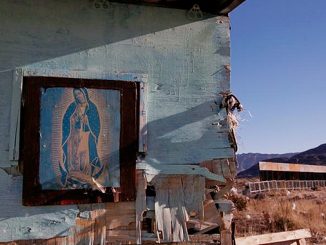
Rome Newsroom, Dec 10, 2020 / 08:30 am (CNA).- Pope Francis has decreed a Year of St. Joseph in which Catholics will have the opportunity to obtain a special plenary indulgence.
Until December 2021, there are many new ways that Catholics can receive an indulgence, including entrusting their daily work to the protection of St. Joseph the Worker or reciting the rosary with their families.
These acts must be accompanied by sacramental confession, Eucharistic Communion, and prayer for the pope’s intentions, the usual conditions to obtain any plenary indulgence.
Plenary indulgences remit all temporal punishment due to sin and must be accompanied by full detachment from sin.
According to the decree issued by the Apostolic Penitentiary on Dec. 8, there are 15 ways to receive an indulgence in the Year of St. Joseph:
1) Participate in a spiritual retreat for at least one day that includes a meditation on St. Joseph.
2) Pray for St. Joseph’s intercession for the unemployed that they might find dignifying work.
3) Recite the Litany of St. Joseph for persecuted Christians. Byzantine Catholics have the option of an Akathist to St. Joseph.
4) Entrust one’s daily work and activity to the protection of St. Joseph the Worker.
5) Follow St. Joseph’s example in performing a corporal work of mercy. These include feeding the hungry, giving drink to the thirsty, clothing the naked, sheltering the homeless, visiting the imprisoned, visiting the sick, and burying the dead.
6) Perform one of the spiritual works of mercy, such as comforting the sorrowful, counseling the doubtful, instructing the ignorant, admonishing the sinner, bearing wrongs patiently, forgiving injuries, and praying for the living and the dead.
7) Pray the rosary together with one’s family in order that “all Christian families may be stimulated to recreate the same atmosphere of intimate communion, love and prayer that was in the Holy Family.”
8) Engaged couples can also receive an indulgence from praying the rosary together.
9) Meditate for at least 30 minutes on the Lord’s Prayer, because St. Joseph “invites us to rediscover our filial relationship with the Father, to renew fidelity to prayer, to listen and correspond with profound discernment to God’s will.”
10) Pray an approved prayer to St. Joseph on St. Joseph Sunday, the Sunday after Christmas in the Byzantine Catholic tradition.
11) Celebrate the feast of St. Joseph on March 19 with an act of piety in honor of St. Joseph.
12) Pray an approved prayer to St. Joseph on the 19th of any month.
13) Honor Joseph with an act of piety or approved prayer on a Wednesday, the day traditionally dedicated to St. Joseph.
14) Pray to St. Joseph on the Feast of the Holy Family on Dec. 29.
15) Celebrate the feast of St. Joseph the Worker on May 1 with an act of piety or prayer.
“All the faithful will thus have the opportunity to commit themselves, with prayers and good works, to obtain with the help of St. Joseph, head of the celestial Family of Nazareth, comfort and relief from the serious human and social tribulations that today afflict the contemporary world,” the decree signed by Cardinal Mauro Piacenza said.
The elderly, the sick, and the dying who are unable to leave their homes due to the coronavirus pandemic also have special permission to receive an indulgence by “offering with trust in God the pains and discomforts” of their lives with a prayer to St. Joseph, hope of the sick and patron of a happy death.
The decree noted that in this instance the person must have the intention of fulfilling, as soon as possible, the three usual conditions for an indulgence, as well as a detachment from sin.
The Apostolic Penitentiary permits any prayer to St. Joseph approved by the Church, mentioning in particular the “To you, O blessed Joseph” prayer composed by Pope Leo XIII:
“To you, O blessed Joseph, do we come in our tribulation, and having implored the help of your most holy Spouse, we confidently invoke your patronage also. Through that charity which bound you to the Immaculate Virgin Mother of God and through the paternal love with which you embraced the Child Jesus, we humbly beg you graciously to regard the inheritance which Jesus Christ has purchased by his Blood, and with your power and strength to aid us in our necessities.”
“O most watchful guardian of the Holy Family, defend the chosen children of Jesus Christ; O most loving father, ward off from us every contagion of error and corrupting influence; O our most mighty protector, be kind to us and from heaven assist us in our struggle with the power of darkness.”
“As once you rescued the Child Jesus from deadly peril, so now protect God’s Holy Church from the snares of the enemy and from all adversity; shield, too, each one of us by your constant protection, so that, supported by your example and your aid, we may be able to live piously, to die in holiness, and to obtain eternal happiness in heaven. Amen.”

[…]








